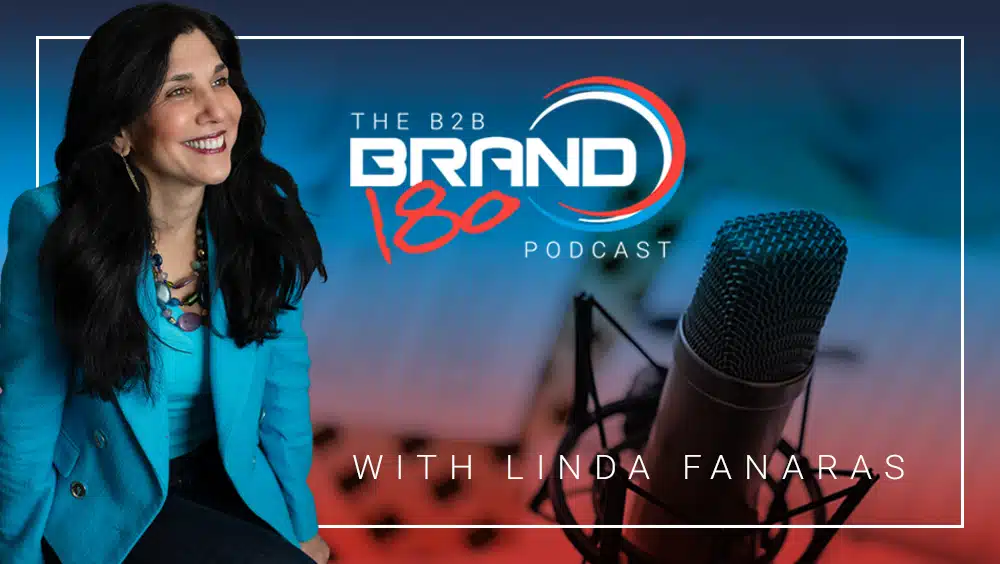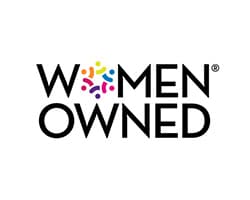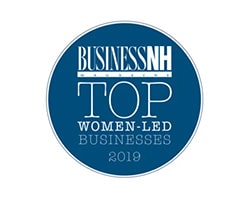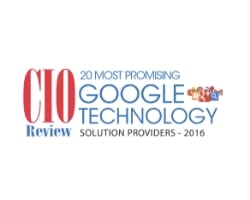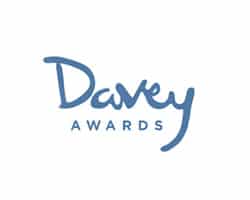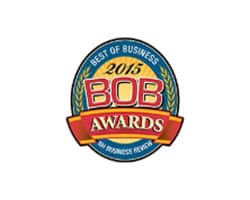In this episode of B2B Brand180, Linda interviews Ryan Kauth, business coach, fractional executive and founder of the Fractional Executive Podcast. They discuss the challenges faced by established founders and family business owners who are navigating the often-turbulent waters of business growth.
Ryan shares his experiences as a business coach and executive, and the lessons he’s learned over his diverse career spanning two dozen years in various industries. He offers an insider’s view into his teachings at top business schools, and the growth strategies he imparts to his students. Ryan provides insights as to why businesses plateau, the potential reasons behind a lack of growth, and the invaluable role of senior leadership in transforming stagnation into success.
Tune in to discover Ryan’s unique take on strategic leadership development, operations, profitability, and much more.
Thanks for listening to the B2B Brand180 Strategy podcast with Linda Fanaras, CEO/Strategist at Millennium Agency.
Follow Ryan Kauth at LinkedIn and visit his coaching website.
You can follow Linda at: https://www.linkedin.com/in/lindafanaras/
and Millennium Agency at https://www.linkedin.com/company/millagency/.
Linda Fanaras:
Hi, I’m Linda Fanaras, host of B2B Brand180 and CEO of Millennium Agency. If you want to transform your B2B marketing into a powerhouse brand, then you may want to listen in. And if you like what you heard today, click like, share or subscribe. Today we’re going to talk to Ryan Kauf, the founder of the Fractional Executive Podcast, which is for founders and family enterprise owners of businesses that are under 10 million in annual revenue who are frustratingly stuck on their current plateau of no growth. And the Fractional Executive Podcast is a perfect place to listen in to learn how you can help accelerate your growth. So Ryan is a business coach and executive. So let’s get started.
Ryan Kauth:
Hi, Linda. Thanks so much for having me on. As you said, I’m a business coach and executive. I do that via Fractional chief of staff services. And as you said, I work with established founders and family business owners primarily. And primarily in those, in that revenue range, although I do work especially with family businesses that are larger than that. My background is in various industries over the past two dozen years. In addition to that you know, one of the things you and I have talked about that I do is I teach university classes. So right now, I’m teaching a family enterprise executive ed class for a top business school. And then in the fall, I will be teaching undergraduate strategy capstone classes at another top business school.
Linda Fanaras:
That sounds fantastic. So, I love the work that you’re doing on the Fractional Executive Podcast. Can you just tell me why you actually started that and what motivated you to, you know, position that podcast in that way?
Ryan Kauth:
Yeah. As I’ve kind of looked back over the last, you know, two dozen years, the thing that I like the most is learning. And as you know, when you’re teaching, you actually learn a whole a lot, really. I grew up listening to radio, sports on the radio. I loved the kind of old-time radio, plays and things like that. And so obviously when podcasts started happening, I glommed onto that like really quickly and you know, we always all kind of have that bucket list, right? And one of those bucket list items for me was the start of podcast. And typically my bucket list is this notebook that I put over here, write down my ideas. Sometimes I go back to it. I probably should more than I, you know, that I do. And things aligned well. Time wise production company wise. And so I’m really grateful that I was able to start that podcast. The reason I chose this particular audience and the name is, first of all, Fractional executives are I would say more mainstream today. So the fractional executive podcast is actually not specifically for fractional executives, although it is indirectly. It’s really for established founders and family business owners who would hire fractional executives because most founders and family business owners do these functional roles inside their business. So they are actually multiple Fractional executives kind of all at once. And so there really wasn’t a podcast out there. And again, there’s many of them that was addressing growth issues for established founders and family business owners. And so what I wanted to do is I wanted to have on really good guests. Who could tell, who had functional expertise, but also became strategic CEOs, which is again, a very hard thing to do. Because honestly you can’t take a class to do that. And I wanted them to tell their stories about their struggles and how they did it.
Linda Fanaras:
Yeah, that’s great.Because I think you know,you look at business owners in general and they’re running businesses in a certain type of way,and it’s hard to get over that threshold of growth. It could be something that’s holding them back mentally. It could be something that’s holding them back financially. There’s so many different aspects that could be holding these business owners back from growth. And I think it’s important to take a deep dive into some of those things.So it’s great that you help CEOs tackle that.So what are you actually finding that are the biggest challenges executives are facing
Ryan Kauth:
today?when,you know,when I start working with an established founder,family business owner,the,one of the first things we start working on is their own.Founder or family business owner,executive leadership development.Now,granted,I am not an executive coach.However,part of being that strategic CEO is you have to be an over communicating strategic CEO that asks why questions and then how are we going to do it?Because if you don’t ask those questions,It’s really hard to become strategic and some people use the phrase of I’m working on my business versus in my business or I’m operating versus owning and what you need to get to at some point.And as you alluded to,there are things that hold that founder back.That’s probably you know,the,the number one thing, but as, as you know, and you work with founders and family business owners their marketing side, there’s also sales, business development, marketing issues. There’s operational issues. There’s org culture and org development issues, especially with talent in there. And as you alluded to, there’s financing issues.So we work with all five of those areas.And really when you’re stuck on a plateau of no growth, which every business will be at some point and multiple times,you know,throughout their their life cycle.We have to kind of diagnose what it is right now on this plateau.That’s holding you back. And once we diagnose that and have a plan going forward,we also bring in the other ones so that the next time you’re on that next plateau.You can be proactive and progressive to get off of it and not be reactive.And eventually calling a business coach and saying,I can’t,you know,I can’t get,I can’t get off of this current plateau right now,
Linda Fanaras:
right?So are you finding that companies are at specific plateaus for different types of reasons,or do they tend to fall into very similar categories?I had some,I think at one point in time during my,business stage here.I was complaining to somebody that I was having a hard time growing and she said well You need to work on the inside of the company before you work on the outside of the company And I thought to myself,well,maybe she’s right,you know,maybe she has she has a point there So,what are your thoughts?Do you feel like people fall into very specific categories when they’re stuck in their growth?
Ryan Kauth:
Yeah, there’s definitely similarities. For example, unless you’re an operational specialist or you were COO before, more than likely your operations were reactive. You know,I’m going to react to my customers rather than being proactive and building good management systems and asking questions like,Okay,we’re manually doing this right now.Is there a way to automate it but still have,you know,there’s this high tech part,but we’re a high touch company,you know,we’re a human interaction company.Can we still do that but automate,you know,some of these things so that we can leverage the good talent that we have and use them to interact with people rather than interact with systems.
Linda Fanaras:
That,that makes complete sense.So what are some of the,I guess if you were to give companies some tip,you would give a presentation,for example,on,you know,here are some tips that I could give you executives or you CEOs that want to expand your business,but you feel stuck.What would some of those top line tips be?
Ryan Kauth:
Yeah,the first one I would start with and the kind of the first conversation is what I kind of call growth, exit, other, and so it’s really that why are we stuck? But the real question is why do we want to grow?And then what do we want to grow?Because most founders and family business owners are looking at the top one,right? Because that’s kind of the vanity measurement feeds the ego. And the other,the other part is nobody really talks,likes to talk about how profitable you are.Nobody wants to talk about that. They want to talk about their sales. So it could be that you don’t grow your sales,but you grow your profit Slightly switching who you serve from a customer standpoint,right?So I mean you first start with the other What are all the things going on in your life family business owner founder and what are all the things that are going on?In the lives of your team that make this do we grow question be a definite yes, or do we now think about exiting? And there’s lots of different ways to exit,right?You can you know,you can sell to your employees.You can sell to a competitor.You can sell on the open market. Or maybe the exit really is we should be acquiring someone else so that we can grow that way and I think Most founders and family business owners are used to growing quote unquote organically and they look at this acquisition growth piece as something that’s not attractive or cheating, or not the right thing to do when in reality There might be more opportunities out there in, in that the challenge is nobody talks about those,right?So how do we find those opportunities? And as the CEO of your company, you’re probably having daily or weekly conversations with. Those types of people. And sometimes it’s just asking the question.
Linda Fanaras:
You know, executive space, so many challenges today. And I think after COVID with the big digital transformation that we had enough, just in a blink of an eye, I think it’s smartened us all up. They have data privacy issues, security issues. They’ve got the remote workers and the change in culture and the demographics that are working today. I mean, how would an executive embrace this change and make it work for them.
Ryan Kauth:
I think Linda, the, the example that you used about, you know, pre-COVID, during COVID, post-COVID because that’s so new and we’re not going to forget that, right? Very easily. I think that’s a great place to start and talk about things such as, “What did our customers do differently?” “What do they expect of us now?” Because it’s certainly different than it was five years ago. And when you’re having those conversations. Sometimes we have blinders on and what I mean by that is we’re just looking internally without looking outwardly.And so one of the ways to become a strategic executive is to understand what’s going on in your geography or your local area,what’s going on in your industry,and then what’s going on with your peers.In other industries and in your industry.So moving into some kind of industry association,some kind of peer group,those things are going to probably help you in business.More than all the classes you took in your MBA.Right.And,you know,I tell my college students that is,you’re going to learn more from each other,Mm hmm.Than you are going to from me in this class.Right.But,I’m telling you this because,if it’s an undergrad student,as you go get your MBA,or,Whatever executive education you’re,you’re going to go out there and get,that’s just the beginning,right?You’re learning this.This is the beginning.Now you have to go and apply it.And the first question really is,does this even apply to me and my organization?
Linda Fanaras:
You know,and I have been part of CEO forums and the thing that I do love about it is,and your point is very good,is I think as a,as an owner or an entrepreneur of a business,you’re faced with different challenges as they come up and then you’re learning about those challenges and you’re trying to address them to the best of your ability in that way.Just put your practical expertise to that,to have good decision making,but with these CEO forums and groups,you’re able to learn about so many aspects of business and,and the natural.Problem solving setting.It can make a tremendous amount of difference whether you’re dealing with HR,cultural issues,whether you’re dealing with,workflow issues or whether you’re dealing with financial issues or,you want to sell your business,whatever those are,these,these points come up in those types of forums and you’re able to learn about them on the spot,which makes it an exceptional opportunity to just I Get educated.So no,that’s a great point.Thank you.So before we go to our next question,I just want to take a minute here and thank the audience for listening in.And you can help us grow our channel by liking subscribing and sharing B2B Brand180 Podcast with your colleagues.So I’ll move on to the next question for Ryan here today.And I don’t know if you’re finding that this is coming up as.Talent acquisition and retention.It’s finding that talent and hanging on to them as long as possible.When I started my career,if we didn’t stay in a job for10years,we were considered a job hopper.And that’s not the case today.I mean,we’re talking a year or every six months.So,What are you recommending to your executives around that topic?
Ryan Kauth:
I think this is where your expertise comes in,Linda,as well,I really think that marketing and the folks in your business that are working with your talent,Typically,human resources professionals need to work together even more,because really,if you think about it,and again,my perspective is working with executives,but then I also am in these classrooms where there are traditional and non traditional age.B School students.Mm-hmm. And so what I see with them is,or ask them,is what is your professional network like right now?And the unfortunate part is I’ve got seniors who only know their roommates.And a couple of odd job bosses that have hired them and things like that.They haven’t done any good professional networking.And so if I’m telling them,you need to go and talk to hirers at a job fair or whatever that might be,or talk to the guest speakers that come in the classroom because guess what?They hire people.I then flip that with the executives that I work with and I say things like.Okay.How old are the hiring systems that you’re using right now?Are they the same things that got you hired?Great.That might’ve worked for you30years ago,but what about today?Right.Again,that same operational question.What about this?Can you automate?There’s lots of really cool startups that have launched in the last three years,probably because of COVID who are automating parts of these systems,but then again,there’s the human side of these systems,as well.You don’t know how many people I’ve heard colleagues who have said things like,you know,I applied for this job,had a few interviews and never heard back from them.So if you think about that.How many stars is that review going to get?Right.In today’s,in today’s world.And that leads to,okay,well,what is your hiring reputation right now?And when you have that candidate,right?You might get dozens,hundreds of applications for that one open position.How do you treat all of them?And then here’s the other part,right?Do you have an alumni network?Yeah,interesting.Yeah,because there are companies that don’t have an available spot for an emerging leader.And they go somewhere else.Would they recommend working where you are?Because what happens quite often is you can hire them back.What happens if the company they went to merges with someone else and they lose their job?Yep.Would you welcome them back?And so,the talent today has expectations.And if you don’t know what those expectations are,just like your customers,right,marketers understand this you also need to have that same kind of mentality.With the talent that you have and the talent that you’re going to try to attract and then hire and develop and retain.
Linda Fanaras:
Yeah,that’s a great point.And you know,with this remote workforce that we have today,onboarding has become so much onboarding and training has become so much more challenging.And I feel like the learning curve is much.Higher than it ever has been before due to some of these challenges that we have today that,if you’re not in the office,you can’t run to somebody’s desk and ask them a question.You can’t sit down with them as easily to explain something.So we are using all these other strategies and sometimes that one on one.Really getting to see somebody,whether they understand what you’re saying or don’t understand what you’re saying is really important.So are there some tools out there that companies can consider or,or strategies that companies have used to overcome this?this challenge that we have today with the remote workforce and onboarding and training?
Ryan Kauth:
Yeah.So,I mean,there are in sales,you have CRM,right?There’s the same kind of products for hiring and project managing those hires today.I think are actually easier to use than a CRM is pretty easy to use today,especially if you’re adapting,you know,something off the shelf for your company.Yeah,but,but then as you were talking about onboarding again,there’s systems for that as well.With some of those,those also will measure and try to figure out what your culture is like,and then maintaining the culture,and having those purposeful meetings with your direct reports and supervisors.Right.You know,again,today in our world of scrum meetings,right?Which is,you know,a real quick meeting.And then you’re questioning,do we even need a meeting for this?Or should this just be an email?There still needs to be interaction with supervisor and direct report.And now,again,in this work from home culture.How do we do that?Well,and again,there,there are products out there that are very specific for your industry.And again,there’s work from home.There’s people on the shop floor.I mean,there’s all these different ways that we go to work today.That have existed,but now are also changing and there definitely are products and systems out there,out there for that.And there’s experts who you can bring in to help you even develop those things,just like if you wanted to hire somebody to help you adapt your CRM and sales.
Linda Fanaras:
Exactly.And I know there’s so many new tools out there today,and it’s hard to know what to take advantage of and what not to take advantage of.But you’re absolutely right.There’s some great tools out there.I think in your experience,are you finding that companies are talking more about sustainability and environmental issues?Is that coming up as a key point?Meaning You know,putting more friendly practices into their strategies,maybe reducing the carbon footprint or adopting renewable energy sources,minimizing waste.I think companies have a hard time sort of navigating some of these up and coming initiatives.And I’m wondering if you have companies that are facing that today.
Ryan Kauth:
Yeah,absolutely.I think the challenge actually starts with Are we even talking about what we’re doing?So i’m finding that there are companies that are doing these things strategically.It’s part of their culture,right?Now we’re talking about okay.Well,are we telling people that we want to hire that we do this?Right and and again,you know,it kind of goes back to some of the things we learned way back when in business school,when we took that inner integrated marketing communication class,right?And are we not just telling our stories about what we’re doing for sustainability or what we are doing in an environmentally friendly way,but we need to talk about it.And we need to tell our employees and our clients and our prospects and prospects being customers and talent what we’re actually doing.Sometimes you see these annual reports,right?And you’re really like,okay,well,These are probably required by somebody.Right,right.But who actually reads those?So,take that content,and again,you know this,Linda,take that content and actually use it.The,whole important part of that,of the start with why movement,that’s not the important question.The important question is who cares?And so,if you’re not talking about what you do,you’ll never find out who actually cares about it.
Linda Fanaras:
Yeah,that’s a great point.And I always like to talk about companies and determining what their core values really are and making that part of their DNA,frankly,because every company has its own value,you know,what they consider.important to them.They maybe they want to be authentic.Maybe they want to be environmentally.You know,they want to be a sustainable company or they want to focus on innovation.So they all have these very specific core values that they need to set as part of their DNA.And and if they can live by that and figure out who are they as a company?I think it can also help them.Attract the right talent and the right people that fall into that category.If somebody doesn’t care about sustainability,maybe that company is not the right fit for them.Maybe they don’t care about innovation.It’s not the right fit for them.So I think it’s important to get those core values determined,get them into place,making sure the employees are onboarded,understanding what that is and getting those points across.So,that’s really helpful.Because I think as CEOs,especially in that range,you know,we always say we’re in our own silo.What would you say if you were to give a CEO three pieces of advice to help grow their company,what would your top three answers be?
Ryan Kauth:
Talk to your team,your leadership team,more than you do.As a group and as individuals,number two,we’ve all probably heard of the show undercover boss,right?Yeah.I think a lot of people watch that show to see who’s going to get fired,right?Which manager is going to get fired.But I think that show really shows how there are lots of CEOs who really,at some point along the way have just kind of lost it.They’re locked up in the ivory tower per se,and they’re not feet on the street.Figure out how you can not be undercover boss,but out in the open boss.Again,one of the,one of the examples I use a lot of is.Early in my career,I went with the CEO of the company I was working with to a manufacturing company.And sometimes when you walk in the door of a company,you can tell right away if that culture is good or bad.There’s a feeling,right?This CEO walked the floor of his manufacturing company,didn’t say anything to anybody.And I,I saw two employees who actually sneered at the CEO,like,Oh,that guy is back here.I hate that guy.Right.And I was in my first,my first thought was we can’t work with this company just,just because of that.Right.Tip number three kind of goes back to what we were talking about is continue on the road to being that strategic CEO.You have a mission vision values for a reason.How are you leveraging that strategically?You just talked about that in the,you know,in the,in the question before.And that goes on an individual basis,right?And when you’re thinking about being strategic,one of the ways to do that,besides peer groups and industry associations,is to lead in something.And it could be as simple as leading in your community.Right.You know,you don’t have to lead in your industry.You don’t necessarily even have to lead the world or be world class.But what if you just chose to lead in something In your community and then you were able to teach other ceos other founders other family business owners How you did that right and I think if you have that mentality I think that will help you Along that road of being more strategic rather than that functional expertise role where you’re reactively putting out fires every day,
Linda Fanaras:
I liked what you talked about when you heard somebody talking me behind the back or snarling at the CEO,because I think when you talk to employees,you can get a vibe.And so that vibe is either positive or negative.Maybe they they look and act defeated,or maybe they’re They’re energized or maybe they’re happy you can get a pretty clear picture by just talking to the staff and understanding what the vibe is within the company.And I think that’s a good indicator for CEOs.As far as.you know,if they were to take an internal look on what they have going on and taking a look at their employees and seeing how they act and behave.I think that that can help them answer some,some big questions.So that was great.Thank you,Ryan.So I just want to wrap up here.I want to take a minute and thank you for listening today on behalf of B2B brand.180.And again,thank you,Ryan,for all your executive insights.And if you want to listen in with Ryan,definitely check out his podcast.It is fantastic.The fractional executive podcast.You’ll find it in a snap.And thanks for tuning in today And we hope you find that the insights and strategies shared will be valuable and actionable for you again.I’m Linda Feneres,host of B2B Brand180and CEO of Millennium Agency,where you can visit us at mill.M I L L dot agency.Or if you have any questions,it’s L Fanaras at mill dot agency,or just simply connect with me on LinkedIn.And just to help our channel grow and educate more B2B leaders on brand strategy,feel free to click like,share,or subscribe.Thanks again for listening.And until next time,happy marketing.





